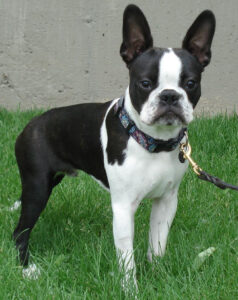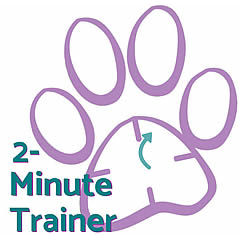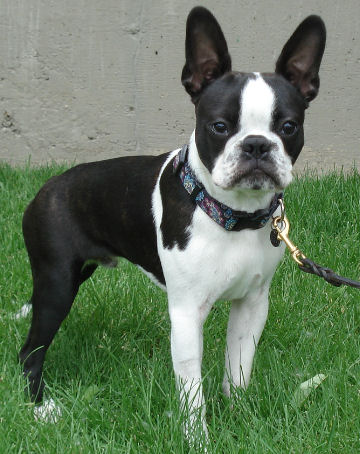Everybody has stuff they have to do and don’t like. The same holds true for most dogs. Some dogs love to ride in the car. Others are fearful. Dogs don’t necessarily love getting brushed. Some do, but others just put up with it. If you make a game of stuff the dog hates, you’ll both be happier.
As adults, we all do things we find unpleasant because we either should, or must. Whether the reason is for your own well-being (like going to the doctor), or your life’s obligations (like working), you do it. You may not be overjoyed about it, but you do it.
There are also things our dogs don’t like doing. It could be tooth-brushing, getting in the car, or putting on a harness or collar. Our dogs don’t understand that all of these things are for their own good. They don’t understand long-term consequences. Dogs exist in the now. And if they don’t want to, they’ll do everything they can to get out of doing it.
Give this dog a choice
This weekend we met a dog who gets a bit mouthy and aggressive if he isn’t given a choice. He objects to being pressured into action. The most notable reaction was when he refused to get into his owner’s car after our session. He wouldn’t be coaxed or lured and got mouthy when a hand went to his collar. If Hope hadn’t heeded his warning lip-curl, she would have been bitten.
Imagine our surprise when, with both back doors open and the dog’s leash tossed to the opposite side, he hopped into the car when no one was next to him. It was his choice, so he did it.
Some people would call it stubborn. It’s not. For reasons known only to the dog, he fears being forced into action. We’ll never know why. We can only assess what’s going on and counter-condition it. If this dog reacts badly where he has no options, it’s our job to make sure his options are all good ones.
Make it a game

We faced a similar situation (without the bite threat) with our own dogs. There was a next-door neighbor dog that would bark and fence-fight with our dogs. The neighbor was uncooperative, so there was no way for us to train our dogs not to react when they were off-leash. Our solution was to leash our dogs and “walk” them – even in our own back yard. On the rare occasion the neighbor dog wasn’t outside, we removed the leashes.
Our dogs didn’t much like it. They were accustomed to roaming the yard, sniffing and checking stuff out. When they saw us reach for their collars, they would back away trying to avoid getting hooked up. While we had no choice about leashing them, we also didn’t want them to hate it.
So we made a game of it. Randomly, throughout the day, we would grab a collar and say “Collar!” At first, the dogs were reluctant, but they did it. We put on the collar, rewarded the dog multiple times, repeating the word “Collar!” and “Good Collar!” Then we took the collar off, repeating “Collar!” and the dog was free to go.
It didn’t take long for our dogs to understand that standing still to get their collars earned them rewards. Now when we say “Collar!” they even stretch their necks out to have it on. Just by making a reward-based game out of it, we turned the situation around. Do they love the restriction? No, but the rewards are sufficiently valuable to make it worth their while. We make everything a dog training game!
Allows vs. Loves
There’s a difference between the things your dog will let you do, and loves for you to do. Some dogs love getting brushed. Others tolerate it. Still others resist and make it miserable for everyone. If your dog falls into the last category, think about the steps you can take to turn it around. If your dog is generously rewarded every time they see the comb or brush, they’ll like seeing it. The next step might be touching the grooming tool to a non-sensitive area. And generously rewarding. Then a small, gentle swipe with the brush, gradually building up your dog’s tolerance for the activity.
We’re not saying your dog will ever love getting brushed. But tolerating it with ease is sufficient. There are things that we have to do to keep our dogs healthy and well-groomed. Like us, they don’t have to love all of it. But they shouldn’t be miserable and neither should you. And that’s why we make a game of stuff the dogs hate.







